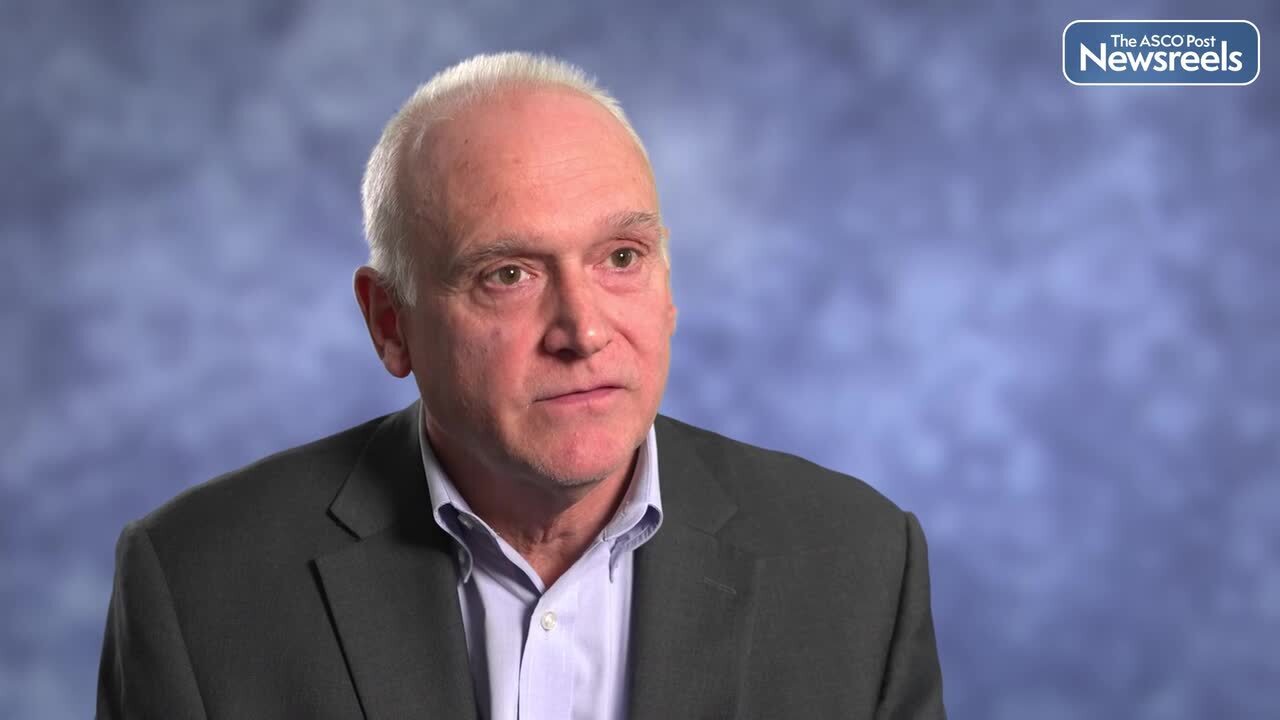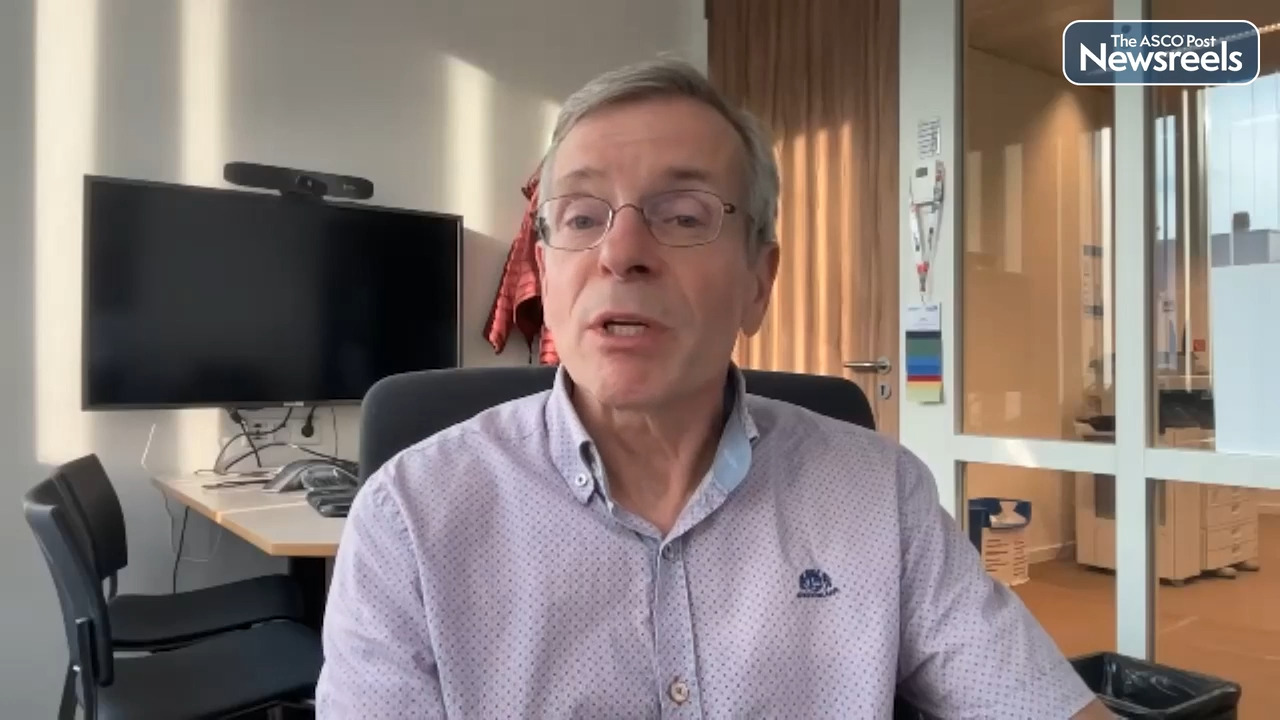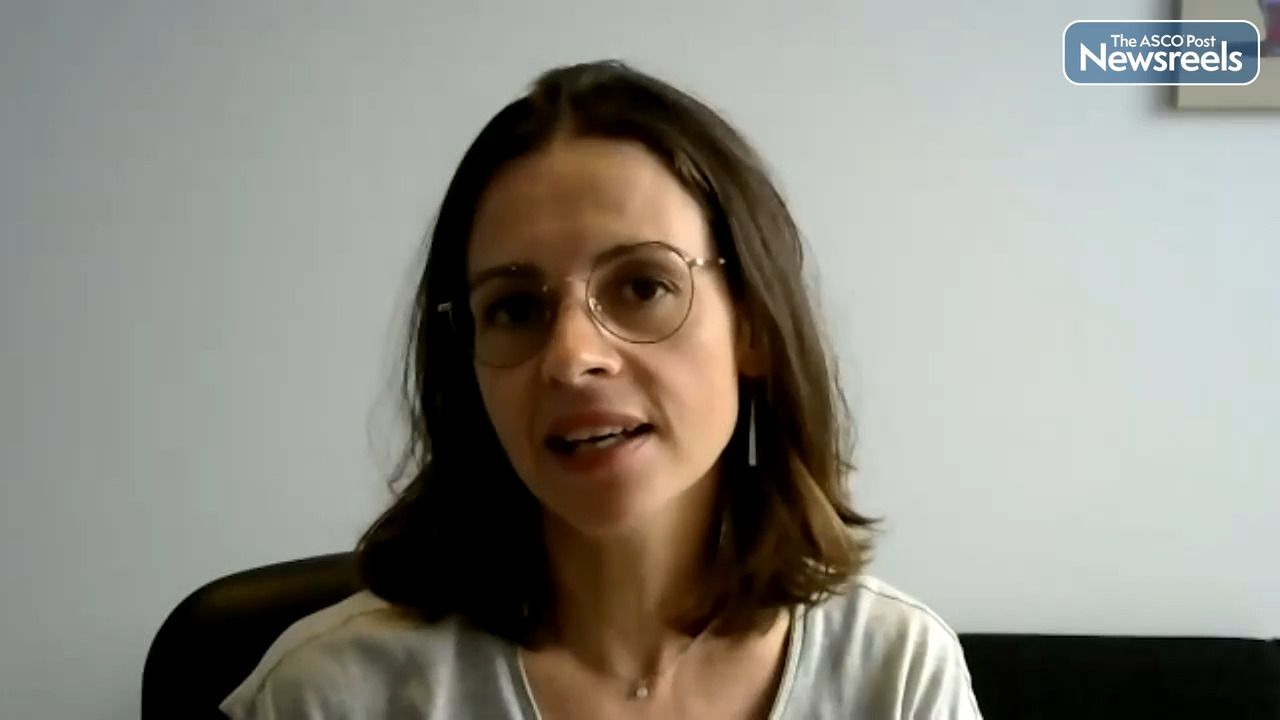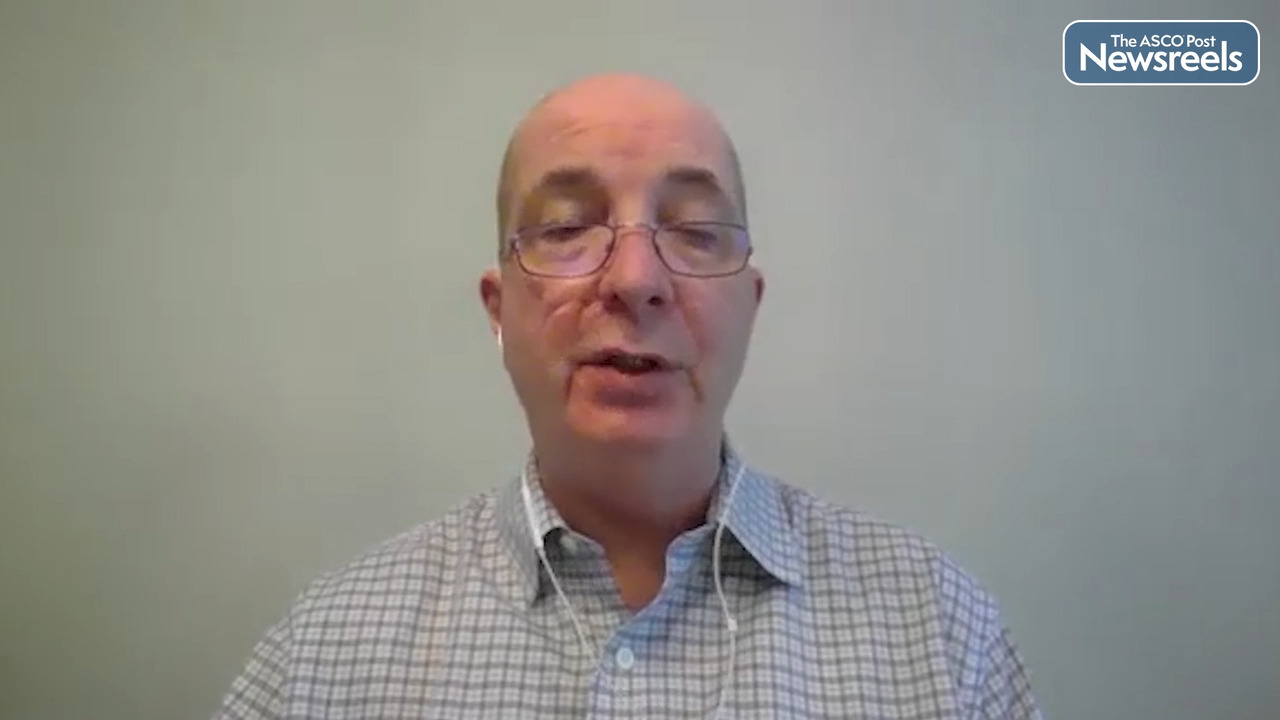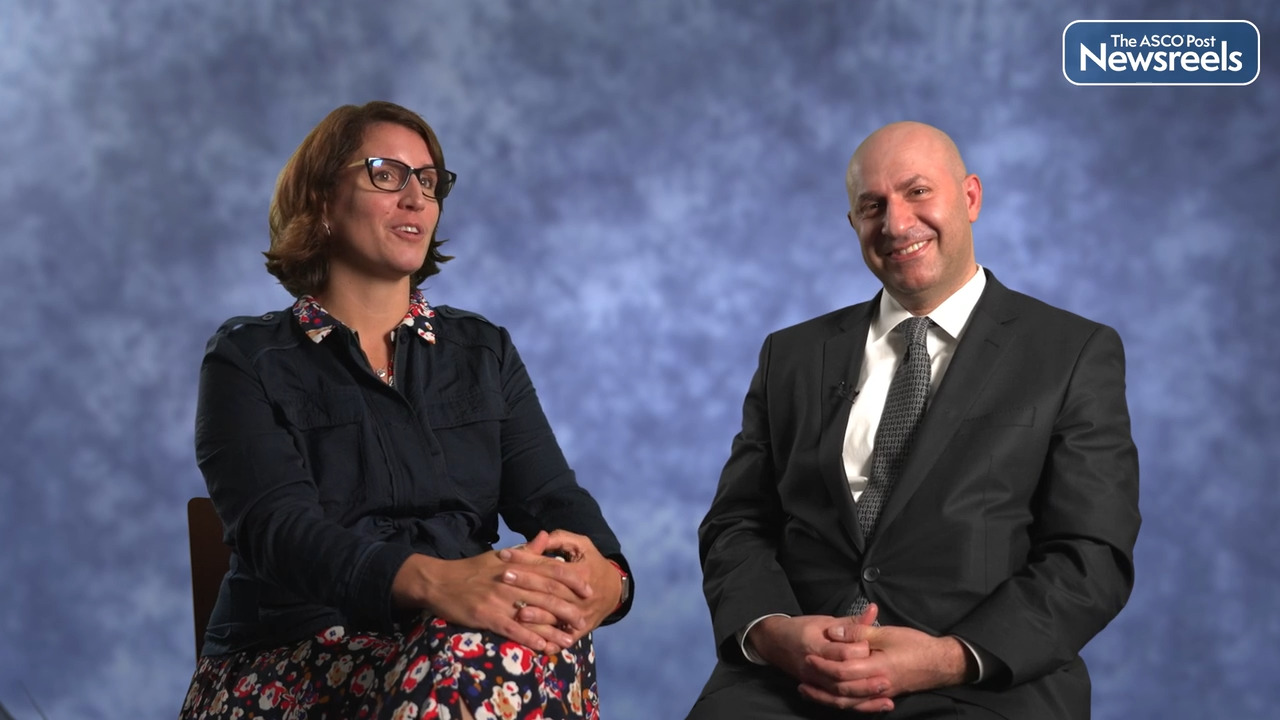Transcript
Disclaimer: This video transcript has not been proofread or edited and may contain errors.
Dear colleagues, it's my pleasure to talk to you about two abstracts that we have reviewed here which have been presented at the ESMO meeting. It's about immunotherapy in patients with advanced non-small cell lung cancer.
The first one was an update of a very important trial, the EMPOWER-Lung 1 trial, comparing a monotherapy with a checkpoint inhibitor, cemiplimab, against platinum-based chemotherapy. We have seen that with an update of the follow-up of the [inaudible 00:00:37] signal and efficacy, we do see the benefit in progression-free survivor and overall survival. There was an interesting part on this trial, because those patients who progressed after immunotherapy had the opportunity to get a combination of a continuation with cemiplimab and a chemotherapy. These data also were resent presented. 64 patients did receive the combination of the chemotherapy and the immunotherapy. The efficacy data were quite impressive, but we have to be aware this was an exploratory analysis for a limited number of patients. We do need more information on the post-progression therapy, but this is certainly something that we need to take into account for our future therapies. We need more prospective data, like the INSIGNIA trial, determining the role of the monotherapy of the combination. But this has been a very interesting update.
The second trial was a French trial. In this trial, the colleagues investigated the role of treatment discontinuation after a certain time of therapy. Patients with an advanced non-small cell lung cancer were treated with a combination of nivolumab and ipilimumab for 6 months, and if there was a response or a treatment stabilization, the patient were randomized in one arm to continue the immunotherapy combination until disease progression or treatment was discontinued, the treatment was stopped. The patients were observed and were monitored, and at the event of progression, there was the opportunity for a reposition to the immunotherapy combination. This was a very well-designed, non-inferiority trial. Unfortunately, recruitment could not be completed due to external circumstances. Only 71 patients were randomized. So we only have exploratory results coming out of this trial, but we did see that there was no detrimental effect seen in the patient who stopped after 6 months of immunotherapy. In contrast, there was a numerical improvement of progression-free survival in those group of patients, there was no difference in overall survival, and as expected, tolerability was much better in the group of patients who discontinued the therapy after 6 months.
In summary, we have got an update on a very important trial, one of the monoimmunotherapy trials investigating cemiplimab. We do see a confirmation of the efficacy with the longer follow up, we have seen a very exploratory signal on post-progression treatment opportunities, and we have a new idea that we might discontinue immunotherapy in responding patients after a certain time of therapy, and this is something which is now going to be investigated in ongoing perspective trials.
